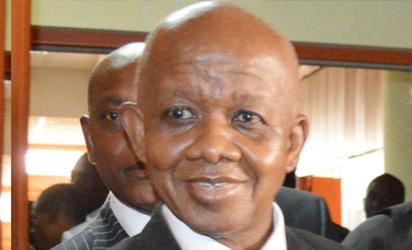
happenings in the judicial sector as the cardinal reason behind his action. His decision came a day after the NJC which is headed by the Chief Justice of Nigeria, CJN, Justice Walter Onnoghen, met in Abuja. The NJC which is expected to deliberate on its recent controversial recommendation for the elevation of 14 new Justices for the Court of Appeal, had adjourned to conclude its meeting today. It was however not clear if the case of Justice Ademola was discussed by the Council. It will be recalled that the NJC earlier went before the Court of Appeal in Abuja to challenge an order restraining it from investigating corruption allegation against Justice Ademola. The Council, urged the appellate court to set-aside the restraining order that Justice Ademola secured against it on July 7. The order was contained in a judgment that was delivered by Justice John Tsoho of the same high court where Ademola is currently serving. In its notice of appeal dated August 14, the legal body, argued that Justice Tsoho erred in law when he barred it from inviting Justice Ademola to answer to allegations contained in a petition that was lodged against him. Justice Tsoho had in the said judgement, stopped NJC from investigating Ademola over the petition that was filed by one Hon. Jenkins Duvie Giane Gwede but subsequently withdrawn. The high court maintained that NJC could no longer open investigation into the matter or invite Ademola to prove his innocence to a petition that was voluntarily withdrawn by the petitioner since 2016. However, NJC, in the appeal it filed alongside three members of its investigative panel- Justice Umar Abdullahi (retd), Justice Babatunde Adejumo and Mrs. Rakiya Ibrahim – raised 10 grounds it urged the appellate court to consider and set aside the high court verdict. It accused Justice Tsoho of assuming jurisdiction in the case where the National Industrial Court of Nigeria has exclusive jurisdiction. The council insisted that Justice Ademola being a serving judge was under its supervision and regulation, saying the planned probe was in line with its statutory function. The restraining order followed a suit Justice Ademola filed against the NJC which had already constituted a three-man panel to commence investigation into the said petition. The embattled Judge had contended that allowing the NJC to go ahead with the investigation when the petition had been withdrawn, would amount to gross abuse of his rights. He told the high court that the NJC earlier invited him through a letter dated July 25, 2016, to appear before the three-man investigative panel on August 8 and 9, 2016. He claimed that the petitioner on his volition withdrew the petition on July 27, 2016, on the ground that it was written in error and based on misinformation. According to him, withdrawal of the petition was backed with affidavit evidence that was deposed to by the petitioner himself, in which he clearly stated reasons he decided to abandon the matter. Ademola told the court that on September 26, 2016, when he appeared before the NJC panel, he was asked to still prove innocence to allegations that have been withdrawn by the petitioner. He told the court that all entreaties to the NJC panel that there was no petition against him any longer proved abortive as the panel insisted that he must go ahead to establish his innocence. Consequently, he urged the court to prohibit the NJC from inviting him for investigation in a petition that had been withdrawn, on the ground that his right to fair hearing would be violated in view of the fact that the respondents cannot be the accuser, prosecutor and judge in the matter. Specifically, the petitioner alleged that the embattled Judge collected $200, 000 to discharge a garnishee order that was granted in his favour. In his judgment, Justice Tsoho agreed that the right of the plaintiff would be violated by the respondents on the strength of the withdrawal of the petition and the filing of affidavit in support of the withdrawal by the petitioner. He therefore stopped the NJC and its three-man panel from taking any further action in respect of the withdrawn petition so as not to violate the right of the plaintiff to fair hearing as enshrined in Section 36 of the 1999 Constitution, as amended. The court held that insistence of the NJC that Justice Ademola must appear before the panel was contrary to the provisions of Section 36 (5 and 6) of the 1999 Constitution and therefore unconstitutional, illegal and unlawful. It will be recalled that Justice Ademola was hitherto suspended from the bench by the NJC. He was later prosecuted by the Federal Government on an 18-count corruption charge alongside his wife, Olabowale and a Senior Advocate of Nigeria, Mr. Joe Agi. FG alleged that Ademola who is a grandson to a former Chief Justice of Nigeria, had in the discharge of his official duties, received bribe from Agi to the tune of N38.5million and perverted the course of Justice. Nevertheless, the trial court, in a judgement that was delivered by Justice Jude Okeke on February 5, discharged the defendants on the premise that FG failed to prove its allegations against them. Having been cleared by the trial court, the NJC which is headed by the Chief Justice of Nigeria, CJN, Justice Walter Onnoghen, at the end of its meeting on June 1, directed Justice Ademola and five other Judges to resume sitting on June 7.
